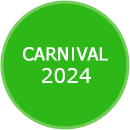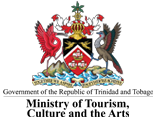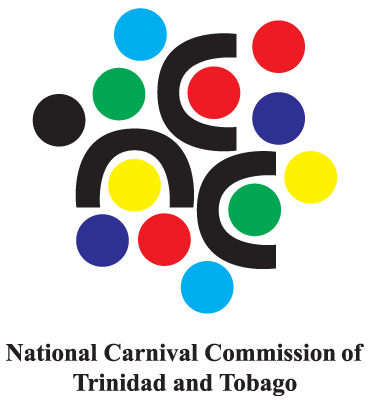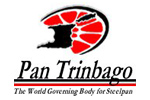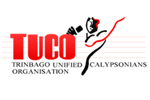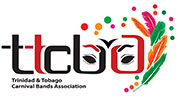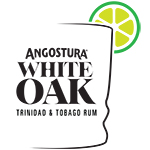NCC launches Carnival 2015 with new Carnival Industry Development Program
 “It’s time to treat the Carnival industry with the respect it deserves.” These were the words of economist Dr. Vanus James as NCC launched Carnival 2015 and their new initiative, the Carnival Industry Development Program.
“It’s time to treat the Carnival industry with the respect it deserves.” These were the words of economist Dr. Vanus James as NCC launched Carnival 2015 and their new initiative, the Carnival Industry Development Program.
At the launch, held on July 23 at the Queen’s Park Savannah, Dr. James said the CIDP would target all aspects of the Carnival industry, to raise its annual growth rate from 3 to 5 per cent.
NCC Deputy Chairman Don Sylvester welcomed the media to a briefing at the VIP Room of the Grand Stand and introduced Acting CEO Mark Byam. Reporting on a recent cultural trip to Zimbabwe, Byam said T&T Carnival – especially traditional mas forms – was generating much interest and excitement in several African countries and that a contingent from Zimbabwe was expected to visit T&T to witness Emancipation celebrations this year.
“Everybody wants to be a Trini,” he said.
Chairman Allison Demas said NCC, in accordance with its mandate, was focused on ensuring the preservation, promotion, sustainability and viability of T&T Carnival.
She said following stakeholder consultations the NCC Board had embarked on a diagnostic review of its structure and operations, and had already overhauled its procurement policies and procedures to ensure efficiency and transparency.
Carnival 2014 was delivered within budget she said.
Demas said the route for Carnival 2015 would be finalized well ahead of the festival, following the results of a Time and Motion study, as well as continued consultations to arrive at a consensus.
Immediately following Carnival 2014, NCC commissioned Dr. James to consult with over 130 Carnival stakeholders as part of its Joint Decision Making Process. As part of ongoing work to measure, monitor and evaluate the development capacity of Carnival, Dr. James is heading the CIDP.
Dr. James said the industry had tremendous growth potential, which needs to be maximized so that benefits can accrue to the national economy as a whole.
He said the CIDP will focus on the core areas of Works of Mas, Steelband, Carnival Music, and Fetes, as well as wide-ranging linked areas such as tourism, construction, transport, health, training, fashion, art, film, software, copyright, vending, new media, etc.
The CIDP has four components.
- First, stakeholders want the nation to know what the carnival industry is, how it works, and why it makes sense to build it. Stakeholders want to measure the carnival industry properly, and empower a local team for this purpose. Stakeholders also want to ensure that every citizen who wants to influence and shape policy will get a chance to do so effectively. This is the essence of the industry’s approach to democracy. We recommend it to the nation
- Second, stakeholders want to strengthen the foundations of the industry by improving what we are doing now, and by adding new frontiers, in the areas of music, steelpan design and manufacturing, steel orchestras, and the carnival itself; well as in new applications in areas such as in film and video games; construction of carnival complexes, and institutionalization of Annual Carnival Trade Fair
- Here, stakeholders want to strengthen the Special Interest Groups and all other business associations in the industry share in the work of business incubation and acceleration, including (i) delivery of upgraded ICT services to their members; (ii) support for loan application and other financing for members; (iii) support marketing of the products and services of members, locally and internationally
- Upgrade of the Infrastructure for the Carnival Industry, with specific reference to (i) Security; (ii) Health; (iii) Physical infrastructure; (iii) Education and Training; and (iv) ICT. Stakeholders were persuaded that special infrastructure is now needed for this rapidly growing industry. In the areas of health, stakeholders agreed to the introduction of improved vending solutions and improved sanitation solutions.Regarding infrastructure, stakeholders emphasized upgrades stage and parade facilities across the nation. Undertake a carnival industry infrastructure needs assessment. The vision that is emerging is one in which the ICT infrastructure is central to the development of the industry, and investments were included to achieve that goal.
The CIDP is expected to cost just over TT$360 million over 5 years, including TT$72 million in Year 1, some of which will be funded by NCC activities.
Minister of the Arts and Multiculturalism, Dr. Lincoln Douglas gave a passionate feature address, urging nationals to move away from associating Carnival with bacchanal and controversy and instead recognize its benefits, economic, social and psychological -- including happiness.
He said: "There's no other model industry where you can invest so little, in terms of income generated, for the country.
He urged investors, stakeholders and consumers to take it seriously.
"We sell happiness to the world, and nobody can do it better than us," he said.
More info on NCC's Carnival Industry Development Industry is available online at ncctt.org.






